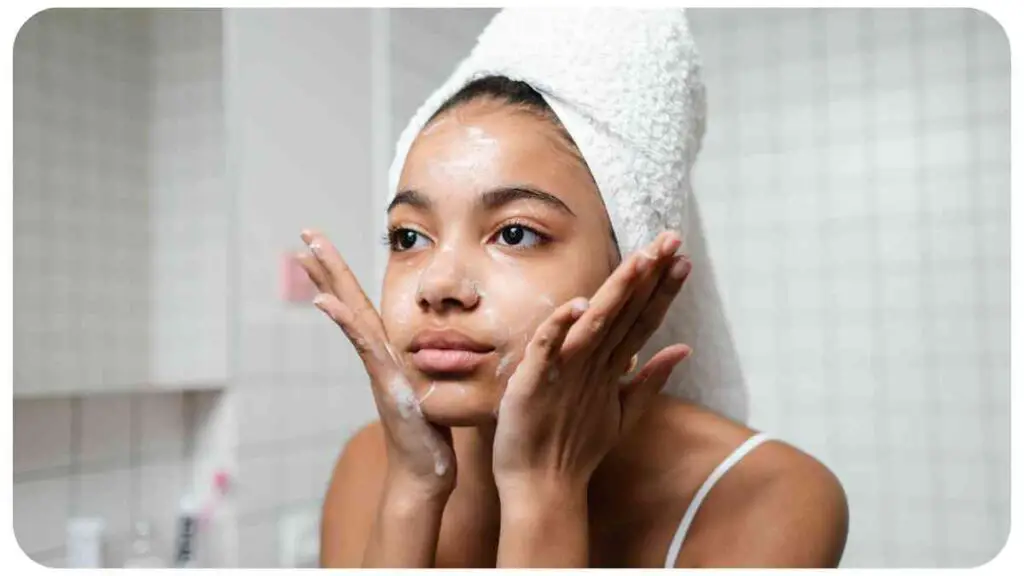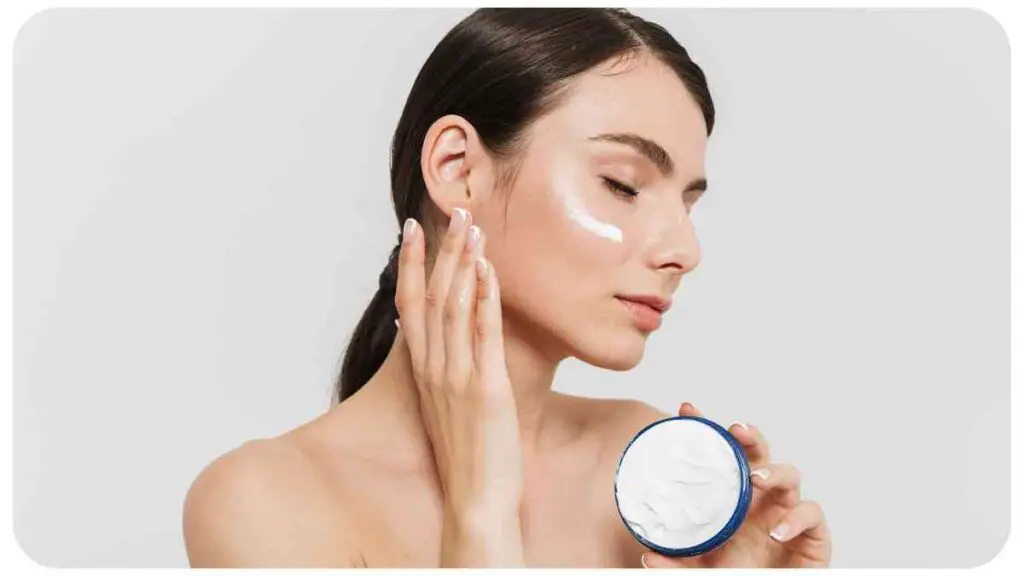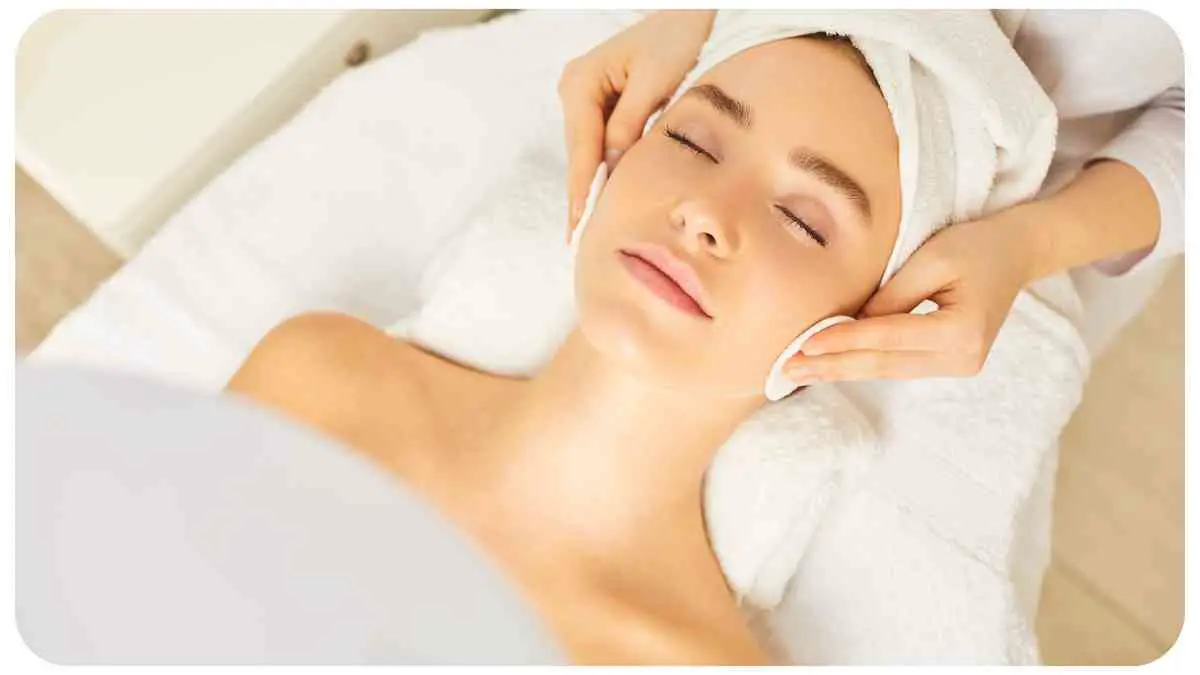Are you considering making the switch to vegan skincare but feel overwhelmed by the amount of information out there? Look no further! In this comprehensive guide, we will walk you through everything you need to know before embracing vegan skincare.
From understanding the basics to finding the best products for your skin, we’ve got you covered. Get ready to explore the world of vegan skincare and embark on a journey to healthier, cruelty-free beauty!
| Key Points |
|---|
| Vegan skincare products are formulated without any animal-derived ingredients or by-products. |
| Vegan skincare routines support ethical and sustainable practices in the beauty industry. |
| Plant-based ingredients in vegan skincare can provide effective solutions for various skin concerns. |
| Transitioning to vegan skincare requires research, ingredient awareness, and a gradual approach. |
| Maintaining a consistent vegan skincare routine and adopting a healthy diet can promote healthy and radiant skin. |
2. Understanding Vegan Skincare
Vegan skincare refers to skincare products that are free from any animal-derived ingredients. This means that they do not contain components such as beeswax, lanolin, collagen, or carmine.
Vegan skincare also avoids the use of animal testing, ensuring that no harm is caused to animals in the production process. By opting for vegan skincare, you not only prioritize your own health but also contribute to a more sustainable and compassionate beauty industry.
“Achieve a glowing complexion naturally” with these all-natural vegan skincare tips and embrace a cruelty-free beauty routine that enhances your skin’s radiance. These tips will help you make the switch to vegan skincare effortlessly.
3. The Benefits of Vegan Skincare

Vegan skincare offers a wide range of benefits for both your skin and the environment. Since these products are composed of natural plant-based ingredients, they are rich in essential vitamins, minerals, and antioxidants that nourish and rejuvenate your skin.
Vegan skincare is often gentle and suitable for all skin types, including sensitive skin. Moreover, by supporting vegan skincare brands, you actively contribute to the reduction of animal cruelty and the preservation of our planet.
4. Difference Between Vegan and Cruelty-Free Skincare
Before diving deeper into vegan skincare, it’s important to understand the distinction between vegan and cruelty-free. While these terms are often used interchangeably, they refer to different aspects of skincare products.
Vegan skincare refers to products that are free from animal-derived ingredients, as mentioned earlier. On the other hand, cruelty-free skincare denotes that no animal testing was involved throughout the production process. It’s possible for a product to be cruelty-free without being vegan, as it may still contain animal ingredients, and vice versa.
Explore a world of compassion and cruelty-free beauty brands that prioritize the well-being of animals. Say goodbye to animal testing and discover ethical beauty products that align with your values, ensuring a guilt-free skincare experience.
5. Common Ingredients to Avoid in Skincare Products
When transitioning to vegan skincare, it’s essential to familiarize yourself with common ingredients that are best to avoid. The table below highlights some harmful ingredients you should watch out for in skincare products:
Table: Harmful Ingredients to Avoid
| Ingredient | Potential Side Effects |
| Parabens | Hormonal disruption, skin irritation, and increased risk of breast cancer |
| Phthalates | Reproductive issues, developmental problems, and hormonal imbalances |
| Sodium Lauryl Sulfate (SLS) | Skin irritation, dryness, and potential harm to aquatic life |
| Formaldehyde | Carcinogenic properties and irritation to the skin and eyes |
| Synthetic Fragrances | Allergic reactions, skin irritation, and possible hormonal disturbances |
It’s crucial to read product labels and opt for vegan skincare brands known for their commitment to avoiding these harmful ingredients.
6. Vegan Skincare Brands to Consider
Now that you understand the importance of avoiding certain ingredients, let’s explore some top vegan skincare brands that you can trust. These brands have gained recognition for their commitment to creating effective and ethical skincare products. Check out the table below for a list of recommended vegan skincare brands:
Table: Top Vegan Skincare Brands
| Brand | Product Range | Key Features |
| Herbivore Botanicals | Facial oils, masks, serums, and cleansers | All-natural, cruelty-free, and ethically sourced ingredients |
| Pacifica Beauty | Cleansers, moisturizers, and cosmetics | Wide range of affordable vegan products suitable for various skin types |
| Youth to the People | Cleansers, moisturizers, and eye creams | Science-backed formulas with antioxidant-rich superfoods for youthful-looking skin |
| Drunk Elephant | Serums, moisturizers, and masks | Innovative clean skincare with a focus on gentle and effective formulations |
| The Ordinary | Serums, exfoliators, and treatments | Affordable and highly customizable skincare solutions, formulated with integrity |
When considering vegan skincare brands, it’s also worth looking for certifications such as the Leaping Bunny logo or the Vegan Society logo, which further validate their commitment to cruelty-free and vegan practices.
Unlock the secrets to a clear and radiant complexion with the ultimate vegan skincare routine. From gentle cleansers to nourishing moisturizers, this comprehensive guide will help you achieve healthy and luminous skin without compromising on your vegan lifestyle.
7. Beginner’s Guide to Building a Vegan Skincare Routine

If you’re new to vegan skincare, starting with a basic routine can help you ease into the transition. Here’s an example of a daily vegan skincare routine to kickstart your journey:
Table: Daily Vegan Skincare Routine
| Step | Product |
| 1. Cleanse | Herbal-infused gel cleanser |
| 2. Tone | Alcohol-free rosewater toner |
| 3. Treat | Vitamin C serum for brightening and antioxidant boost |
| 4. Moisturize | Lightweight moisturizer with plant-based extracts |
| 5. Protect | Mineral sunscreen with no animal-derived ingredients |
Remember, consistency is key when it comes to skincare. Stick to your routine day and night, and give your skin the love and care it deserves.
8. Addressing Concerns About Vegan Skincare
As with any lifestyle change, you may have some concerns or questions about vegan skincare. Let’s address a few common myths and misconceptions:
Elevate your skincare game with these 10 amazing vegan skincare products that will revolutionize your self-care routine. From powerful antioxidant serums to soothing face masks, these products harness the benefits of nature to transform your skin.
Table: Debunking Myths About Vegan Skincare
| Myth | Reality |
| Vegan skincare is not as effective as traditional skincare products | Vegan skincare can be just as effective, if not more, as it often incorporates natural and potent ingredients that deliver impressive results. |
| Vegan skincare is only for people with sensitive skin | Vegan skincare is suitable for all skin types. With a wide range of products available, you can find formulations that cater to your specific skincare needs. |
| Vegan skincare is expensive | While some luxury vegan skincare brands may have higher price points, there are affordable options available as well. Your budget doesn’t have to limit your choices. |
9. Vegan Skincare DIY Recipes to Try at Home
If you enjoy getting creative and want to try your hand at making your own skincare products, here are a few simple and effective vegan DIY recipes:
Table: DIY Vegan Skincare Recipes
| Recipe | Ingredients | Benefits |
| Soothing Face Mask | Mashed avocado, oatmeal, and almond milk | Hydrates, soothes inflammation, and nourishes the skin |
| Exfoliating Scrub | Ground coffee, coconut oil, and sugar | Gently exfoliates dead skin cells, improves circulation, and reveals fresh, glowing skin |
| Calming Facial Toner | Chamomile tea, apple cider vinegar | Balances the skin’s pH, calms redness and irritation, and acts as an astringent |
| Moisturizing Lip Balm | Shea butter, coconut oil, and candelilla wax | Softens and nourishes dry lips, provides a protective barrier, and promotes smoothness |
Remember to always perform a patch test before trying any new DIY recipes or products to ensure you don’t have any adverse reactions.
10. Tips for Finding the Right Vegan Skincare Products
Finding the right vegan skincare products for your unique skin can sometimes feel overwhelming. Here are a few tips to simplify the process:
- Research and read reviews: Look for detailed reviews and feedback from other users who share your skin type and concerns.
- Seek recommendations: Ask friends, family, or skincare professionals for their recommendations on vegan skincare products.
- Sample before committing: Many brands offer samples or travel-size options to try before investing in full-size products.
- Understand your skin’s needs: Identify your skin type and specific concerns (such as acne, dryness, or sensitivity) to narrow down product options.
- Consult with a professional: Consider scheduling a consultation with a dermatologist or esthetician who specializes in vegan skincare.
By taking these steps, you can make informed choices and discover the vegan skincare products that work best for you.
Experience the transformative effects of vegan beauty products as they bring you 15 surprising benefits. Discover how these products can nourish and revitalize your skin while promoting sustainability and ethical choices in the beauty industry.
11. Taking Care of Your Skin from the Inside Out

While a proper skincare routine plays a crucial role in maintaining healthy skin, nourishing your body from within is equally important. Here are a few dietary tips to support your skin health:
- Stay hydrated: Drink an adequate amount of water throughout the day to keep your skin hydrated and help flush out toxins.
- Focus on plant-based foods: Include plenty of fruits, vegetables, whole grains, and plant-based proteins in your diet for essential vitamins, minerals, and antioxidants.
- Boost your omega-3 intake: Consume foods rich in omega-3 fatty acids, such as flaxseeds, chia seeds, walnuts, and avocados, as they help maintain skin elasticity and reduce inflammation.
- Limit processed foods and sugary drinks: These can contribute to skin issues like breakouts and dullness, so opt for wholesome, nutrient-dense options instead.
12. Transitioning to Vegan Skincare: A Step-by-Step Approach
If you’re ready to make the switch to vegan skincare but unsure where to start, follow this step-by-step approach:
- Evaluate your current skincare products: Take inventory of your existing skincare products and check their ingredient lists. Look for animal-derived ingredients and note which products may need to be replaced.
- Research vegan alternatives: Use reputable sources to research vegan skincare brands and products. Look for brands that align with your values and have positive reviews from users and experts.
- Determine your skincare needs: Assess your skin type and specific concerns. This information will help you choose products that target your unique needs, such as acne-prone skin, dryness, or signs of aging.
- Replace one product at a time: To avoid overwhelming yourself and to give your skin time to adjust, start by selecting one product to replace. For example, if you’re running out of cleanser, research and purchase a vegan cleanser as your first step towards a full vegan skincare routine.
- Gradually transition your entire routine: As you run out of each skincare product, replace it with a vegan alternative. This gradual approach allows your skin to adapt while preventing waste from throwing away unused products.
- Incorporate new products mindfully: When introducing new products, give your skin time to adjust and monitor how it responds. If you notice any adverse reactions, discontinue use and consult with a skincare professional if needed.
Remember, transitioning to vegan skincare is a journey, and it’s perfectly fine to take it at your own pace. Listen to your skin’s needs and be patient as you find the vegan products that work best for you.
13. Navigating the Challenges of Vegan Skincare
Transitioning to vegan skincare may present some challenges, but with the right approach, you can overcome them. Here are a few common challenges and tips to navigate them:
- Limited availability: While vegan skincare options have increased, they may still be less readily available than conventional products. Utilize online platforms and specialty retailers to access a wider range of products.
- Ingredient understanding: Familiarize yourself with common vegan and plant-based ingredients to recognize and understand their benefits for your skin.
- Skin sensitivity: Some individuals may experience initial skin sensitivity or a “purging” phase when switching to new products. Allow your skin time to adjust, and consult a professional if concerns persist.
- Customization and trial-and-error: Building your vegan skincare routine may require some experimentation. Embrace the process, and be open to adjusting products based on your skin’s response.
Remember, each individual’s skin is unique, and what works for others may not work for you. Pay attention to your skin’s signals and adapt your routine accordingly.
14. Expert Advice: Thought Leaders in Vegan Skincare
To provide you with a well-rounded perspective on vegan skincare, let’s hear from some thought leaders in this field. These experts offer valuable insights and guidance:
- Dr. Sandra Lee (Dr. Pimple Popper): She emphasizes the importance of incorporating plant-based ingredients in skincare routines to maintain healthy skin and prevent environmental damage.
- Dr. Ava Shamban: An acclaimed dermatologist, she advocates for plant-based skincare and believes that natural ingredients can provide effective solutions for various skin concerns.
- Miyoko Schinner: A renowned vegan chef and founder of Miyoko’s Creamery, she emphasizes the importance of applying the principles of sustainability, compassion, and plant-based ethics to skincare products.
- Dr. Mark Hyman: A functional medicine expert, he emphasizes the connection between healthy skin and a plant-based diet high in antioxidants, essential fatty acids, and phytonutrients.
By considering the advice of these thought leaders, you can gain valuable knowledge on vegan skincare and make informed choices for your own skincare routine.
15. Conclusion
Congratulations on completing this comprehensive guide to vegan skincare! You have learned about the benefits of vegan skincare, understood the differences between vegan and cruelty-free, identified harmful ingredients to avoid, and explored recommended vegan skincare brands.
Remember, transitioning to vegan skincare is a personal journey and may require some trial and error. Take time to understand your skin’s needs, research ingredients, and introduce new products gradually. Maintaining an effective and consistent vegan skincare routine, complemented by a healthy diet, can help you achieve radiant, healthy skin while supporting a more ethical and sustainable beauty industry.
Embrace the switch to vegan skincare, explore new brands and products, and enjoy the process of discovering the perfect routine for your skin. Your commitment to cruelty-free and environmentally conscious beauty is commendable, and the impact extends far beyond your personal skincare journey.
Further Reading
Here are some additional resources to further explore the topic of vegan skincare and transitioning to ethical and cruelty-free skincare routines:
Viegano: Vegan Skincare and Why You Need to Make the Switch: Learn about the importance of vegan skincare, the benefits of plant-based ingredients, and tips for making the transition.
Mazillo: 5 Easy Ways to Switch to an Ethical, Vegan, and Cruelty-Free Skincare Routine: Discover simple yet effective strategies to transition to a sustainable and ethical skincare routine with vegan products.
Clearlife: Why Vegan Skincare & Makeup? Why You Should Make the Switch: Gain insights into the reasons why vegan skincare and makeup are beneficial for your skin, animals, and the planet.
Feel free to dive deeper into these resources to expand your knowledge and make well-informed choices for your vegan skincare journey.
FAQs
Here are some frequently asked questions about vegan skincare:
What does it mean for a skincare product to be vegan?
Vegan skincare products are formulated without any ingredients derived from animals or animal by-products. They exclude substances like honey, beeswax, lanolin, and certain fatty acids derived from animal sources.
Are vegan skincare products suitable for all skin types?
Yes, vegan skincare products are suitable for all skin types. There are a wide variety of vegan products available that cater to specific concerns such as dryness, acne, sensitivity, and aging.
Are vegan skincare products as effective as traditional skincare products?
Yes, vegan skincare products can be just as effective as traditional skincare products. Many vegan brands focus on potent plant-based ingredients that offer numerous benefits for the skin, including hydration, nourishment, and protection.
How can I ensure a skincare product is truly vegan?
Look for certifications such as the Vegan Society logo or the Leaping Bunny logo, which indicate that a product is certified as vegan and cruelty-free. Additionally, carefully review the ingredient list and research any unfamiliar ingredients to confirm their vegan status.
Can I make my own vegan skincare products at home?
Yes, there are many DIY recipes available for creating your own vegan skincare products using natural ingredients such as fruits, oils, and botanical extracts. Just be mindful of proper preservation techniques and perform patch tests before applying homemade products to your face.

Hi! My name is Hellen James, and I’m a vegan lifestyle enthusiast. I’ve been living the vegan lifestyle for over 10 years now, and it’s been one of the best decisions I’ve ever made. The food is amazing, the community is incredible, and there’s no way I could go back after experiencing all this firsthand.


